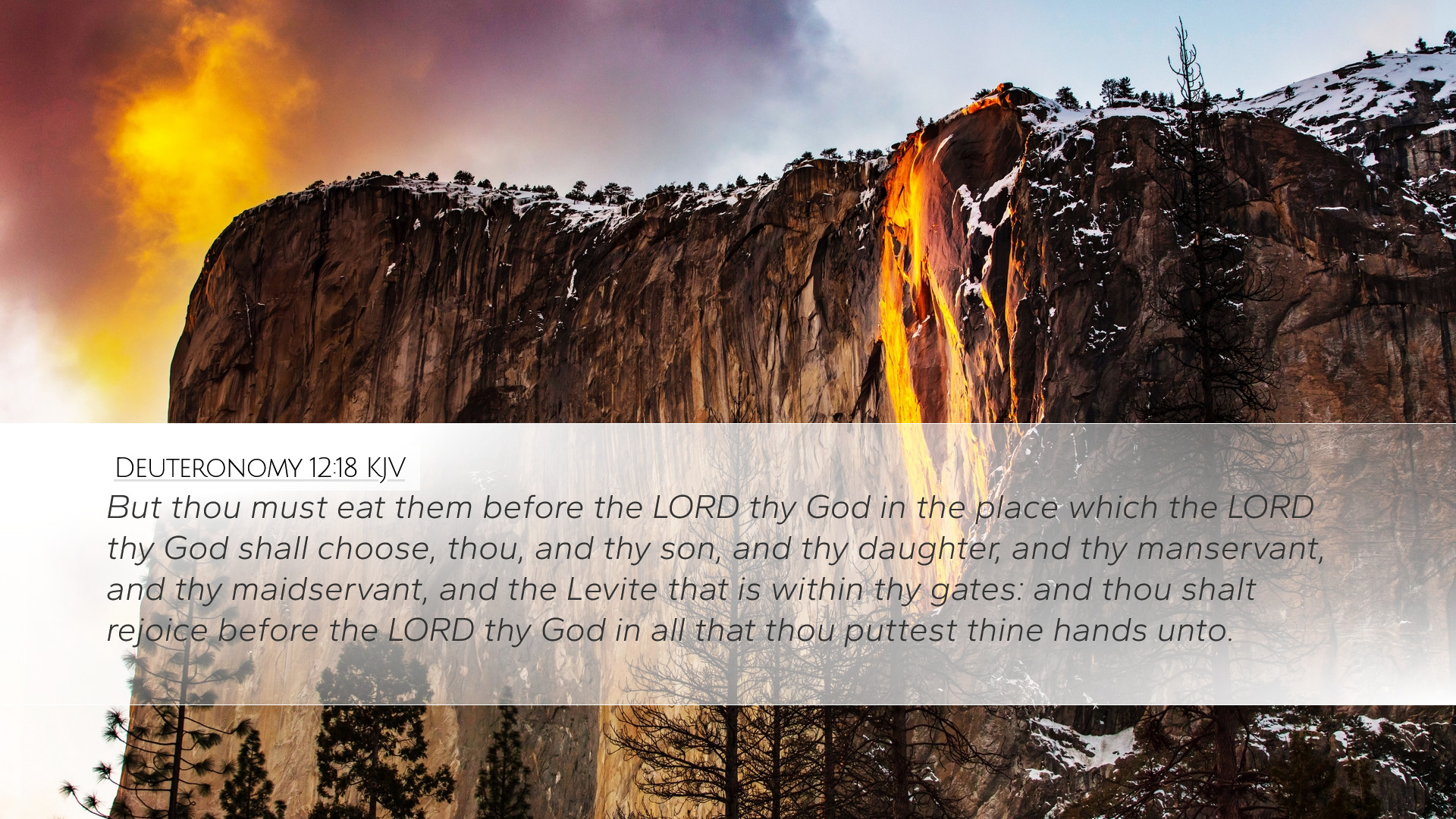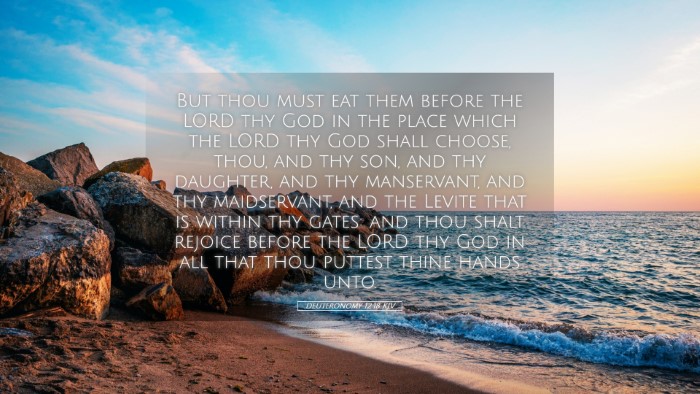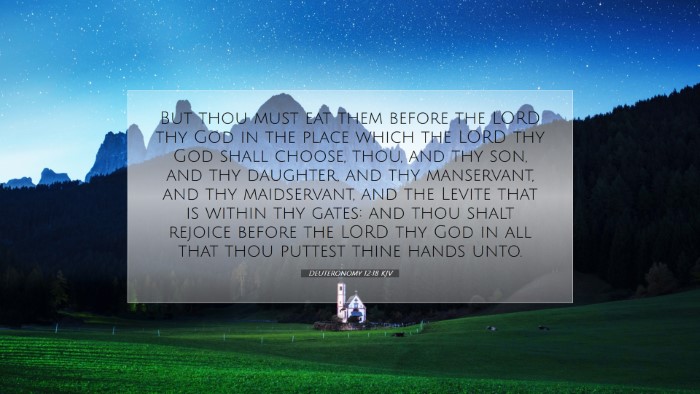Commentary on Deuteronomy 12:18
Text of Deuteronomy 12:18 (KJV): "But thou must eat them before the LORD thy God in the place which the LORD thy God shall choose: thou and thy household: and thou shalt rejoice before the LORD thy God."
Introduction
Deuteronomy 12:18 invites deep reflection on worship, community, and the significance of sacred space. The verse emphasizes that eating certain offerings must be done before the Lord in a specific place chosen by God. This directive embodies the principles of obedience, reverence, gratitude, and communal joy in the context of worship.
Exegesis and Theological Reflection
This verse emerges in a broader context where God instructs Israel on appropriate worship practices. Matthew Henry notes that this commandment safeguards against idolatry and irregular worship by ensuring that offerings are made in God's designated sanctuary. Such practices foster a communal identity centered on God's presence.
Albert Barnes highlights that this verse emphasizes the necessity of divine authority in the location of worship. God ensures that His people worship Him in a manner that underlines His sovereignty and holiness. The act of eating before the Lord signifies an intimate fellowship with God, reinforcing the idea that worship involves more than ritual; it encompasses relationship.
Adam Clarke elaborates on the idea that joy is integral to worship. The passage suggests that the act of joyfully feasting in God's presence serves as an expression of gratitude. Clarke notes that communal rejoicing reflects the unity of family and the community, elevating the act of worship beyond individualism to a shared experience of God's goodness.
Historical Context
The cultural and historical backdrop of ancient Israel is critical to understanding this verse. At the time of the Exodus, the Israelites were transitioning from a nomadic lifestyle to a settled existence in Canaan. This shift included establishing a central place for worship that would unite the tribes and reinforce their identity as God's chosen people.
Henry also posits that ancient Near Eastern cultures often had multiple altars and places of worship. God's command to centralize worship serves to provide order and emphasizes that legitimate worship can only occur where God appoints, thereby setting Israel apart from surrounding nations.
Ecclesiastical Implications
The implications for modern worship are profound. Today's church leaders and congregations must consider the necessity of gathering in unity before God. The New Testament's emphasis on the corporate body of Christ mirrors the communal aspects of worship found in Deuteronomy 12:18. Clarke suggests that this collective worship fosters shared spiritual growth and mutual encouragement among believers.
Moreover, the concept of worship 'before the LORD' calls Christians today to strive for a genuine heart of worship. Barnes articulates that worship should not only be a ritual practice but a heartfelt response to God's grace, reflecting on the joyous nature of true devotion.
Practical Applications
- Cultivating Joy in Worship: Pastors and worship leaders should prioritize creating an atmosphere where congregants can experience joy in communal worship and acknowledge God's goodness.
- Community and Family Focus: As families partake of worship, understanding its significance can reinforce bonds and enhance shared spiritual experiences.
- Reverence in Sacred Spaces: Establish distinct sacred spaces for worship that reflect God's holiness, akin to the central sanctuary spoken of by Moses.
- Encouraging Thankfulness: Integrate opportunities for gratitude into worship services, recognizing and celebrating God's provisions.
Conclusion
Deuteronomy 12:18 serves as a vital reminder that worship is intended to be joyful, communal, and centered on God's appointed place. Through consuming offerings 'before the Lord', the Israelites expressed their devotion, celebrated God's provision, and fostered community cohesion. For pastors, students, and theologians alike, this passage invites a self-examination of our worship practices, urging us to be intentional about creating spaces where both reverence and joy coexist as we engage with our God.


